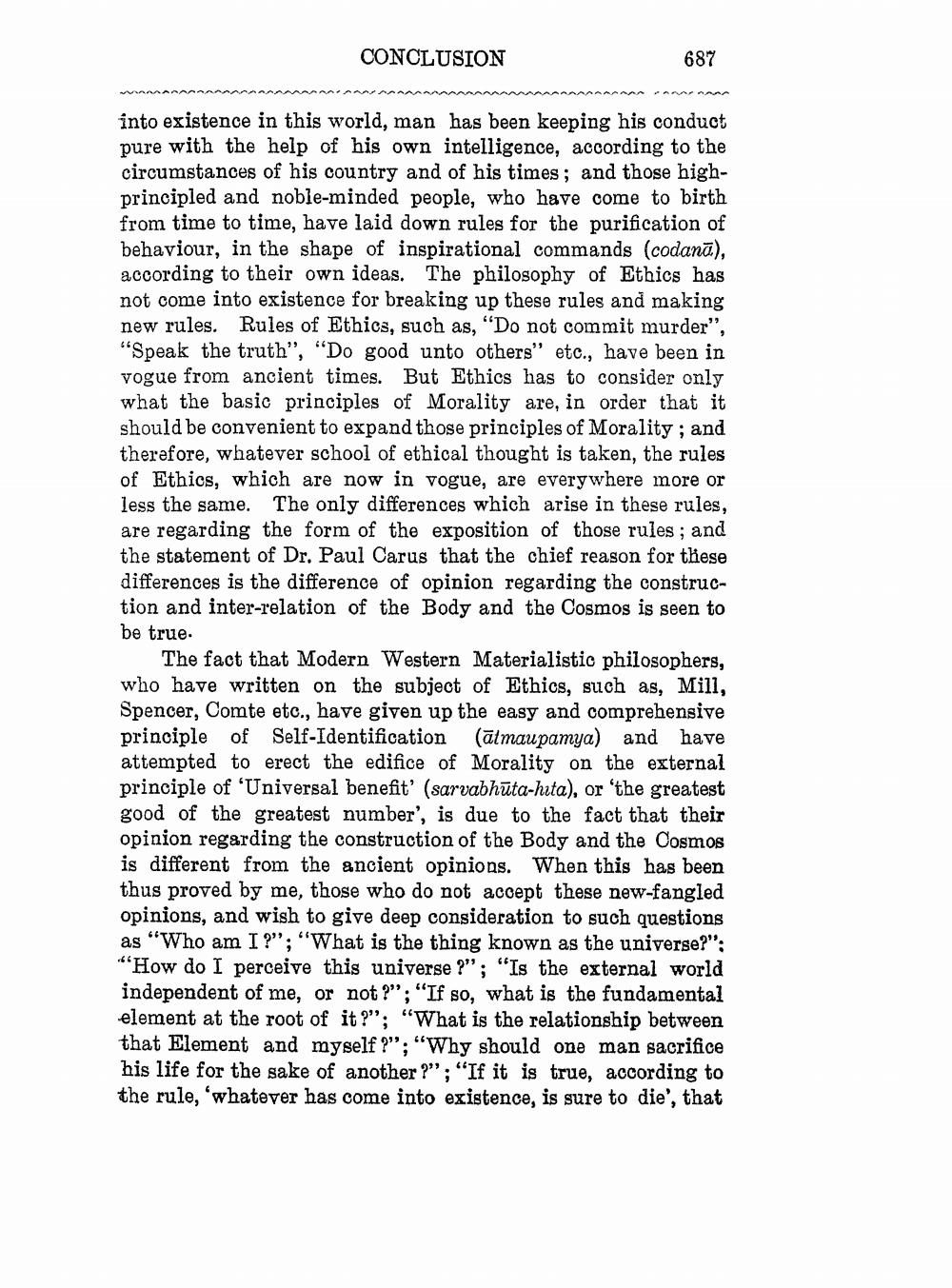________________
CONCLUSION
687
CANA
into existence in this world, man has been keeping his conduct pure with the help of his own intelligence, according to the circumstances of his country and of his times; and those highprincipled and noble-minded people, who have come to birth from time to time, have laid down rules for the purification of behaviour, in the shape of inspirational commands (codana), according to their own ideas. The philosophy of Ethics has not come into existence for breaking up these rules and making new rules. Rules of Ethics, such as, "Do not commit murder", "Speak the truth", "Do good unto others" etc., have been in vogue from ancient times. But Ethics has to consider only what the basic principles of Morality are, in order that it should be convenient to expand those principles of Morality; and therefore, whatever school of ethical thought is taken, the rules of Ethics, which are now in vogue, are everywhere more or less the same. The only differences which arise in these rules, are regarding the form of the exposition of those rules; and the statement of Dr. Paul Carus that the chief reason for these differences is the difference of opinion regarding the construction and inter-relation of the Body and the Cosmos is seen to
be true.
The fact that Modern Western Materialistic philosophers, who have written on the subject of Ethics, such as, Mill, Spencer, Comte etc., have given up the easy and comprehensive principle of Self-Identification (almaupamya) and have attempted to erect the edifice of Morality on the external principle of 'Universal benefit' (sarvabhūta-huta), or 'the greatest good of the greatest number', is due to the fact that their opinion regarding the construction of the Body and the Cosmos is different from the ancient opinions. When this has been thus proved by me, those who do not accept these new-fangled opinions, and wish to give deep consideration to such questions as "Who am I?"; "What is the thing known as the universe?": "How do I perceive this universe ?"; "Is the external world independent of me, or not?"; "If so, what is the fundamental element at the root of it?"; "What is the relationship between that Element and myself?"; "Why should one man sacrifice his life for the sake of another?"; "If it is true, according to the rule, 'whatever has come into existence, is sure to die', that




